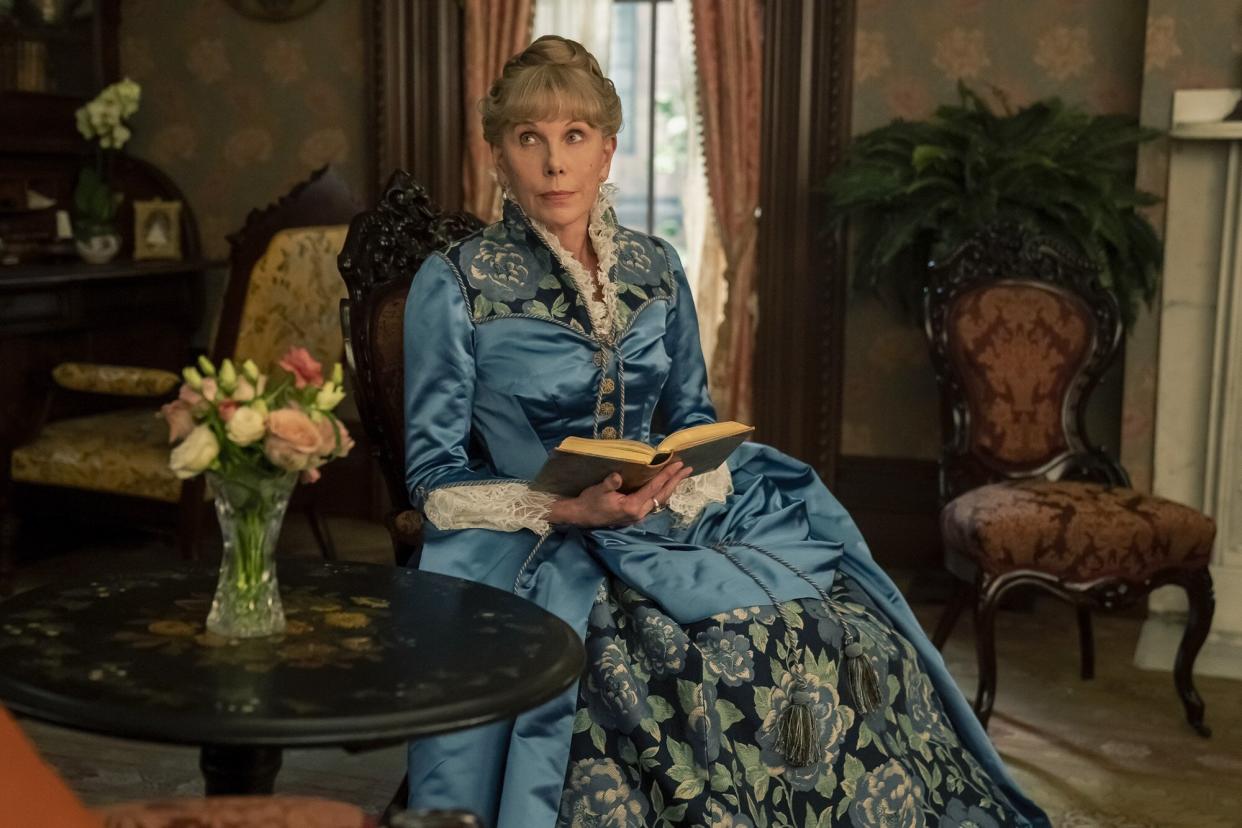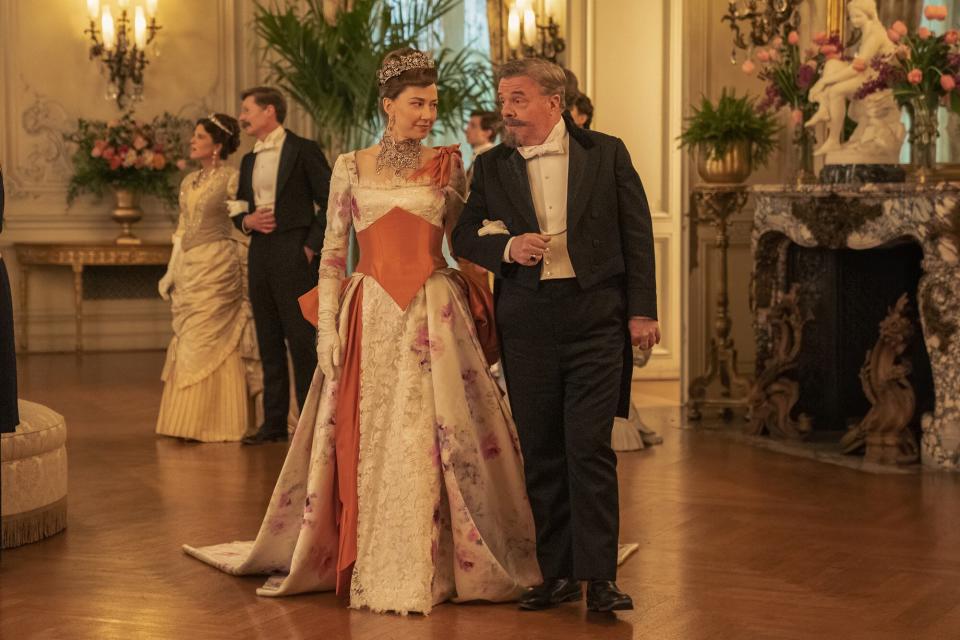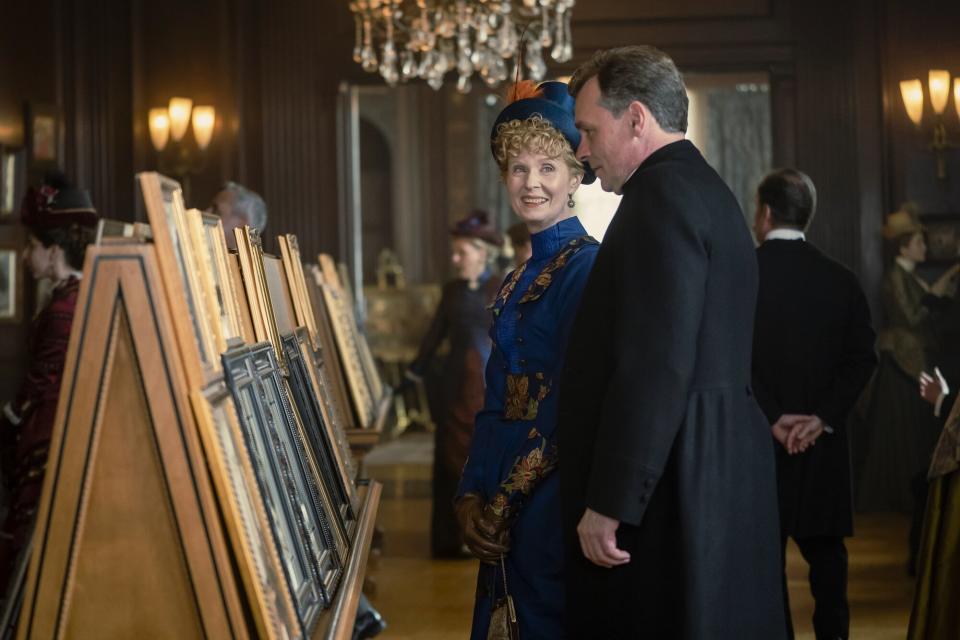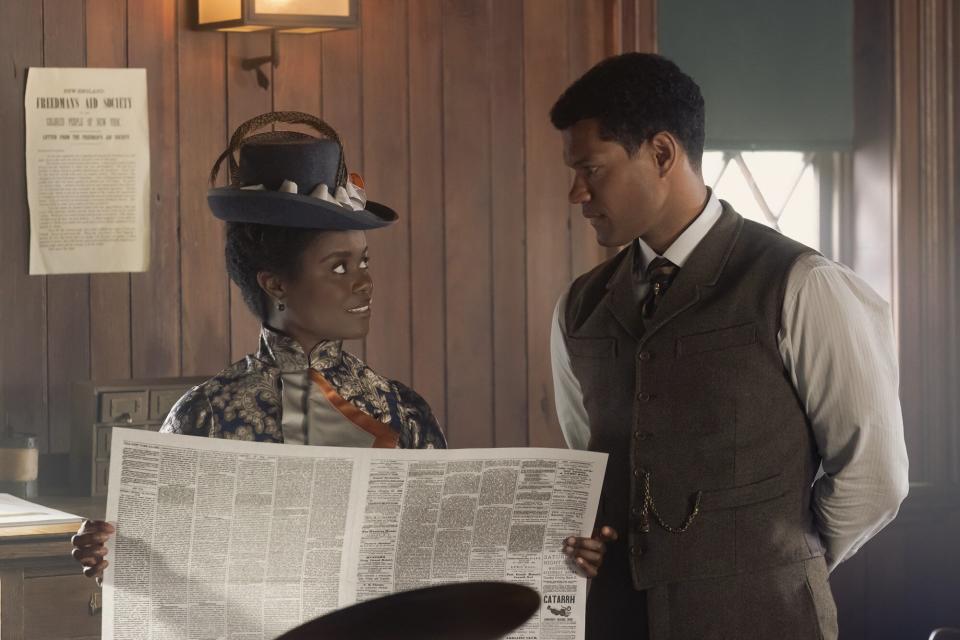“The Gilded Age” season 2 review: History meets opulent, over-the-top escapism

Unhappy rich people — is there anything more delightful? TV has a long history of serving up sensational series about the woes of the 1 percent, from the domestic sagas of Peyton Place and Upstairs, Downstairs to the greedy glitz of Dallas and Dynasty, the soapy scheming of Gossip Girl and Empire to the misanthropic pleasures of Succession and The White Lotus.
Those who prefer a gentler spin on theatrical wealth can always turn to Julian Fellowes — architect of Downton Abbey and more recently, HBO's The Gilded Age — who flavors his historical tales of upper-class ennui with stirring sweetness and dazzling, distracting beauty. After a lengthy break, Gilded Age returns Sunday for a second season that amplifies the historical intrigue and lavish melodrama while delivering a gratifying dose of opulent escapism.

Barbara Nitke/HBO Christine Baranski in 'The Gilded Age'
The year is 1883, and all is well for the leisure class in New York City. Nevertheless, they have complaints. Snooty Agnes Van Rhijn (Christine Baranski) — one of the city's most formidable old-money matrons — is appalled that her independent-minded niece, Marian (Louisa Jacobson), has taken a job (gasp!) teaching art at a local girls' school. Nor is Agnes happy about how well her spinster sister, Ada (Cynthia Nixon), is getting along with the church's friendly new rector, Luke Forte (Robert Sean Leonard).
Across Fifth Avenue, Agnes' new-money neighbor Bertha Russell (Carrie Coon) finds that her thirst for unfettered access to high society is not yet sated. When Caroline Astor (Donna Murphy) denies her a box at the Academy of Music, Bertha considers defying the city's reigning matriarch and backing the soon-to-open Metropolitan Opera House instead. Her husband, titan of industry George Russell (Morgan Spector), faces his own brewing conflict, as increasingly powerful labor unions demand better wages and working conditions. "We must stand together and introduce change when we decide, not them," George warns his fellow robber barons.

Barbara Nitke/HBO Carrie Coon and Nathan Lane in 'The Gilded Age'
In keeping with the show's endearingly impractical worldview, Gilded Age treats Bertha's "opera war" with the same gravity and urgency as the burgeoning labor movement. The 8-episode season highlights a series of societal skirmishes — dueling tea parties and balls; genteel lobbying in stately Fifth Avenue drawing rooms and on the sprawling lawns of Newport estates; a turf war over a visiting Duke (Ben Lamb) — as Mrs. Russell works to lure key power players to her side.
All this frivolous intrigue is a stark contrast to the lives of The Gilded Age's Black characters, none of whom have the luxury of petty feuds and social machinations. Peggy (Denée Benton) has a terrifying experience in Alabama while covering a story on Booker T. Washington (Michael Braugher) with her editor, Thomas Fortune (Sullivan Jones). And back in New York, her mother, Dorothy (Audra McDonald), and activist Sarah Garnet (Melanie Nicholls-King) race to stop the Board of Education from closing a group of "colored" schools.

Barbara Nitke/HBO Cynthia Nixon and Robert Sean Leonard in 'The Gilded Age'
Even with these sobering doses of reality, Fellowes keeps his storytelling pleasantly low-stakes. Scandals erupt and injustices loom, but things almost inevitably work out, and he has a talent for resolutions that birth new and equally delicious complications. When they're not battling it out over opera boxes, Agnes and Bertha focus on the vital science of matchmaking. Oscar (Blake Ritson), the sole van Rhijn heir and a closeted homosexual, resumes his efforts to woo young Gladys Russell (Taissa Farmiga), while Agnes hopes to set Marian up with her extremely suitable (if a bit dull) cousin Dashiell (David Furr). Never mind that Fellowes has telegraphed from episode 1 that Marian is destined to end up with Bertha's kindhearted son, Larry (Harry Richardson); the showrunner is in no rush to bring these rather uninspiring young scions together. This season's hurdle: Laura Benanti, joining the theater-heavy ensemble as a comely widow who hires Larry to renovate her sizable Newport "cottage."

Barbara Nitke/HBO Denée Benton and Sullivan Jones in 'The Gilded Age'
Much of the joy elicited by The Gilded Age comes from watching this assemblage of absurdly talented actors feast on the delectable silliness Fellowes serves their characters. Baranski is a commanding force, whether Agnes is offering withering commentary from a velvet settee or growl-screaming at George for his reckless investment decisions. Coon utters Bertha's every syllable with an extravagant hauteur that is somehow both hilarious and intimidating. ("Look at her scowling. What pleasure it gives me.") Nathan Lane once again plays to the rafters as Ward McAllister, a mercenary high-society influencer with a preposterous mustache and a Foghorn Leghorn drawl. This season reaches its pinnacle of camp with a visit from Oscar Wilde himself (Jordan Sebastian Waller), who swans through a crowd of Manhattan elite dropping droll asides after the premiere of his first play, Vera; or, The Nihilists.
The new episodes are so crammed with story, I haven't even touched on the "downstairs" drama featuring the myriad staff serving the Russell and Van Rhijn households. Just know that this season, footman Jack Turner (Ben Ahlers) is involved in the most moving and inspirational storyline about a broken alarm clock that you're likely to see all year. It's not an exaggeration to say I'm as invested in Jack's horological adventures as I am in Dorothy's turn toward activism, or the bombshell dropped on the Van Rhijn household in the finale's final minutes.
This balance of serious and sentimental gives Fellowes' narrative its undeniable appeal. Late in the season, Gladys poses a question to her mother. "I don't understand — are you and Mrs. Astor friends or rivals?" Replies Bertha, "The two are not exclusive." Is The Gilded Age a whimsical indulgence or an artful, well-acted work of historical fiction? The answer, dear reader, is yes. Grade: B+
The Gilded Age premieres Sunday, Oct. 29, at 9 p.m. ET/PT on HBO.
Sign up for Entertainment Weekly's free daily newsletter to get breaking TV news, exclusive first looks, recaps, reviews, interviews with your favorite stars, and more.
Related content:
